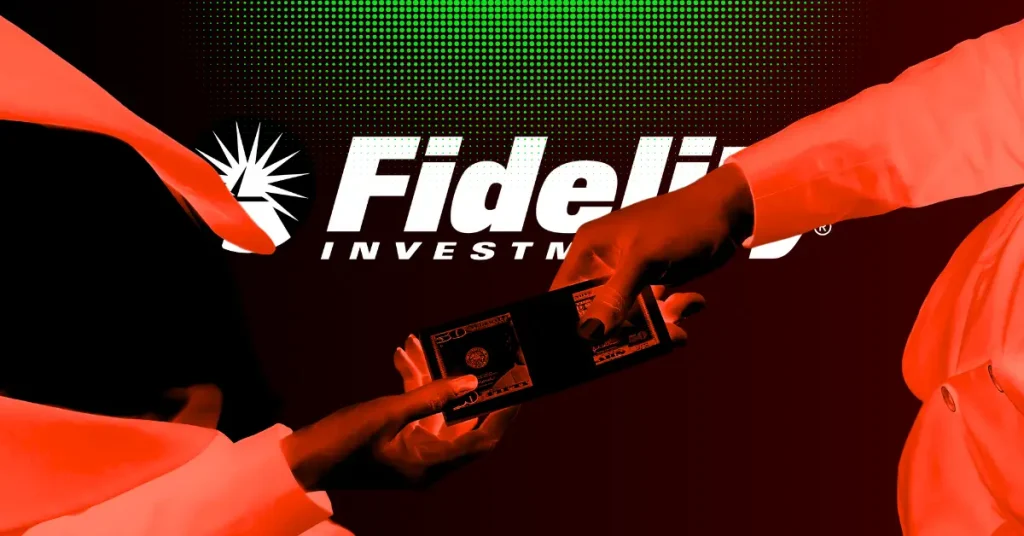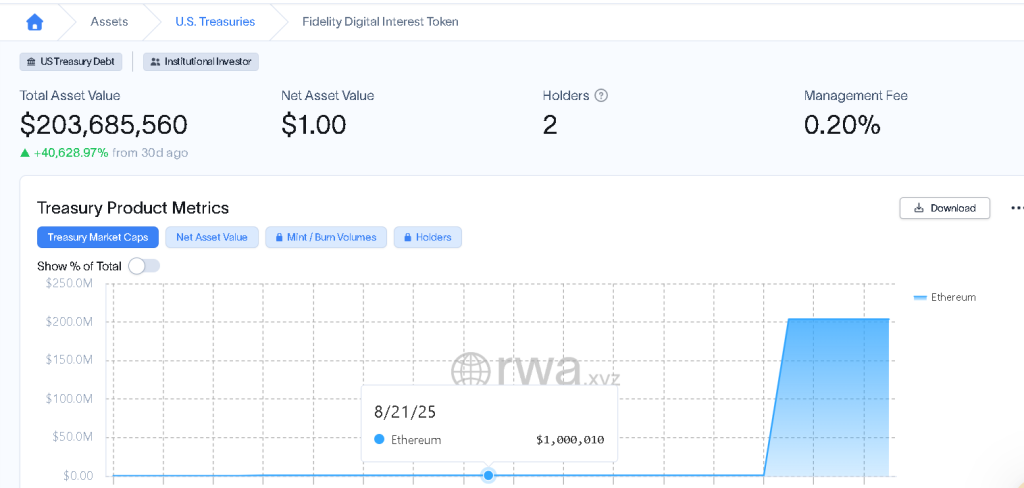Ethereum Shatters Records: Fidelity’s $200M Tokenized Treasury Fund Challenges BlackRock’s Dominance
Wall Street's sleeping giant just woke up—on Ethereum.
Fidelity drops $200 million bombshell tokenized fund, leveraging Ethereum's infrastructure to directly challenge BlackRock's early lead in the tokenization race.
Why Ethereum wins
The network's robust smart contract capabilities and institutional-grade security made it Fidelity's obvious choice—bypassing slower, more expensive traditional settlement systems that still rely on fax machines and paperwork.
Tokenization revolution accelerates
This isn't just another fund launch—it's a fundamental shift in how trillion-dollar asset managers think about liquidity, transparency, and accessibility. Traditional finance finally admits blockchain does it better.
BlackRock's first-mover advantage just got interesting—nothing motivates legacy finance like seeing a competitor actually make money.

Fidelity Asset Management has introduced a blockchain version of its treasury money market fund directly on the ethereum Network. The new product, Fidelity Digital Interest Token (FDIT), holds over $200 million in assets. This is a major step taken by Fidelity into real-world asset tokenization with blockchain technology.
Fidelity Introduces FDIT on Ethereum
The product, FDIT, represents one share of Fidelity Treasury Fund (FYOXX), offering tokenized access to US treasuries. This structure allows blockchain native holders to gain direct exposure to U.S. Treasury securities.
The fund began operations in August with a portfolio consisting only of U.S. treasuries and cash. Fidelity charges a 0.20% annual management fee, with the Bank of New York Mellon serving as the fund’s custodian. The bank also ensures established financial oversight and security.
The firm has not publicly announced the launch of FDIT, but the records confirm that the fund has already reached over $200 million in assets. Current records also show that the fund has just two holders, one with roughly $1 million in tokens and another managing the balance.

Fidelity Digital Interest Token (FDIT) AUM. Source: RWA.xyz
FDIT’s Access and Efficiency
Fidelity’s entry could boost the pace of tokenized fund adoption across institutional investors. It could also broaden market participation if its blockchain rails gain trust. Since FDIT works like an ERC20 token on Ethereum, it lets institutions own, transfer, and settle shares digitally, with 24/7 availability.
It allows investors to MOVE tokens to peer-to-peer (P2P) and make instant redemptions to stablecoins. It can also interact with DeFi applications when useful.
Additionally, the fund itself invests in OUSG, which holds short-term US treasuries and money market assets. This setup allows FDIT to give investors Treasury-like returns while benefiting from speed and transparency on Ethereum.
Market Competition: BlackRock Dominates
Over the past year, global asset managers have been experimenting with blockchain rails to make markets more efficient, fast, and feasible. This drew attention from Franklin Templeton, WisdomTree, and BlackRock.
Right now, BlackRock’s USD Institutional Digital Liquidity Fund (BUIDL) remains the largest tokenized treasury product with a value of over $2 billion. Watching this institutional adoption closely, analysts at McKinsey have estimated that tokenized securities could reach a market value of $2 trillion by 2030, as reported by CoinCentral.

